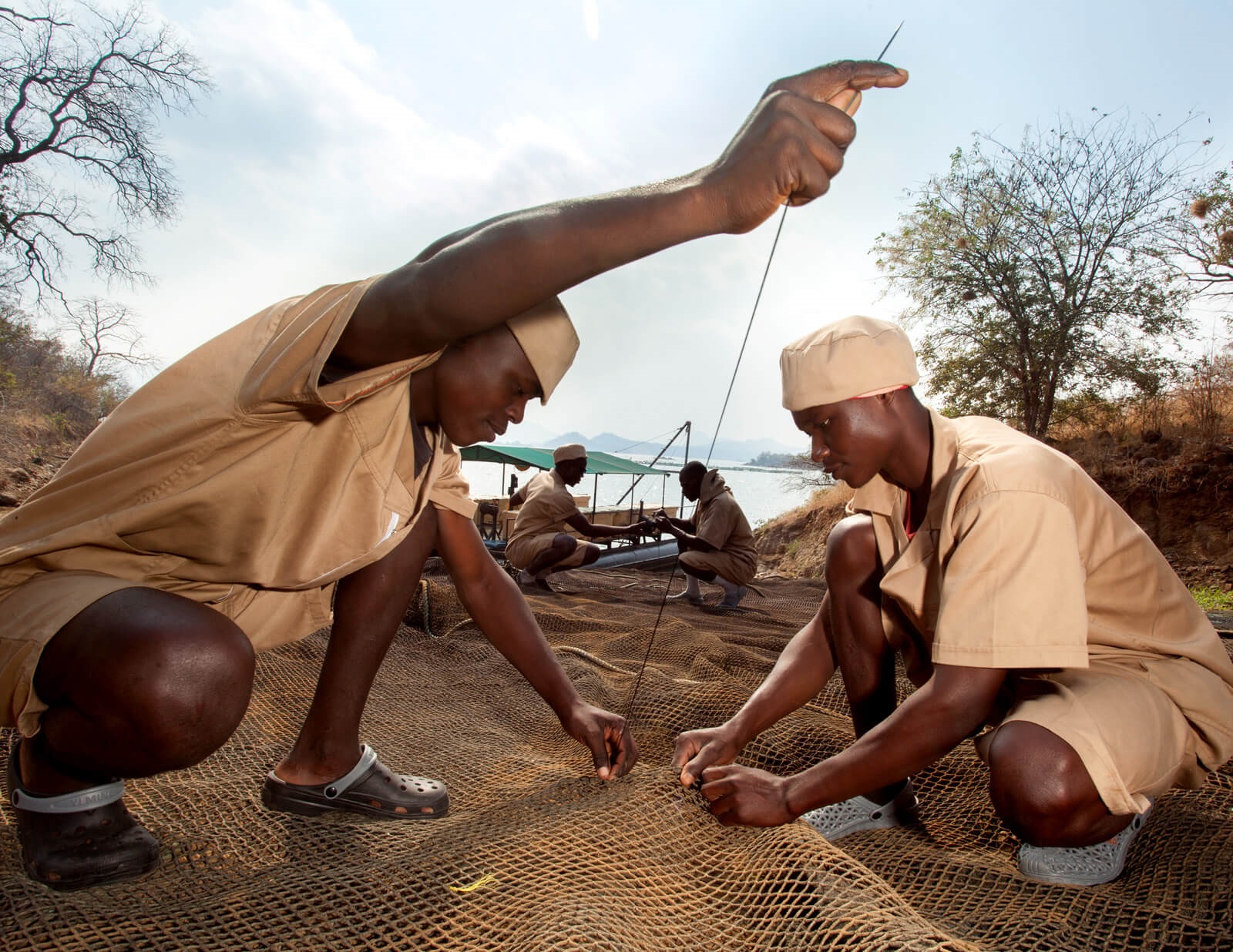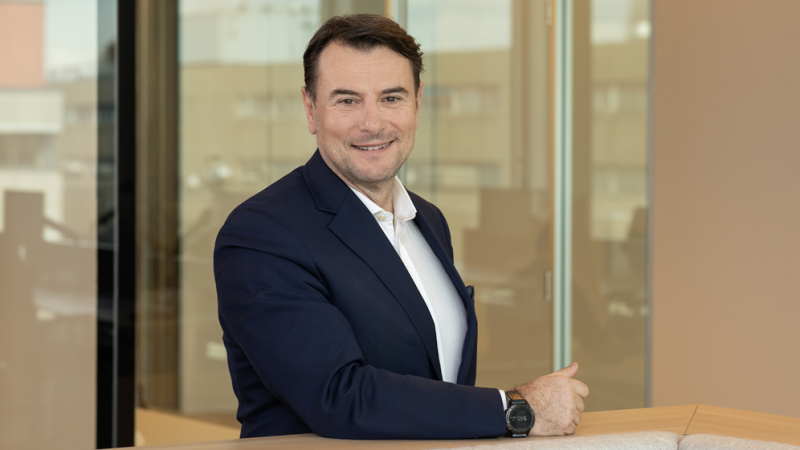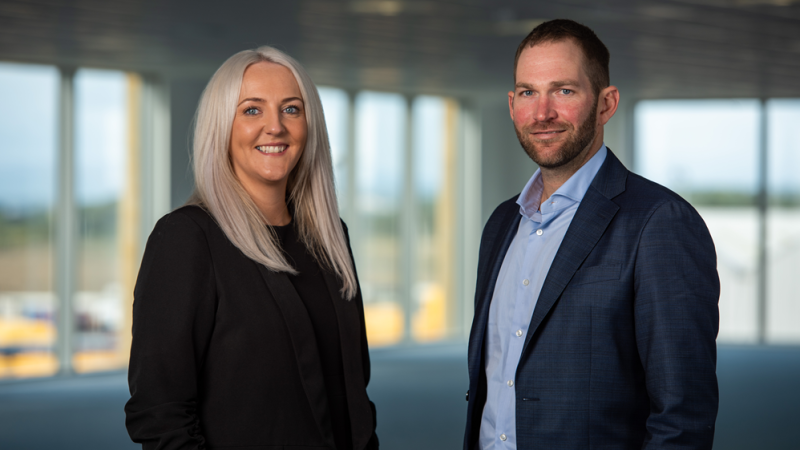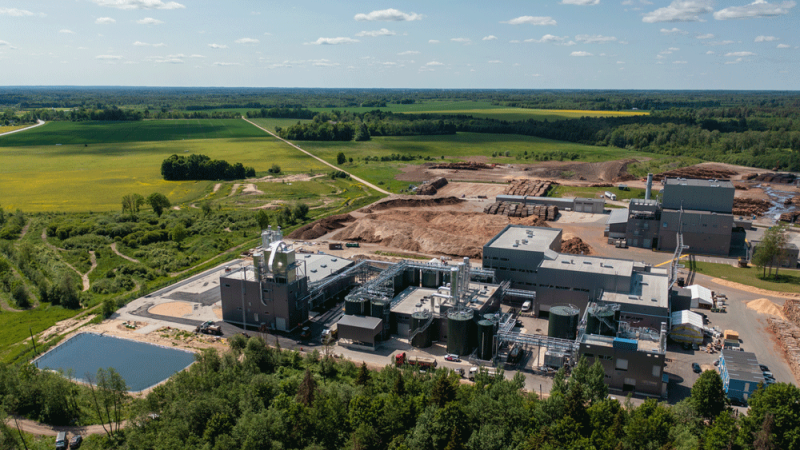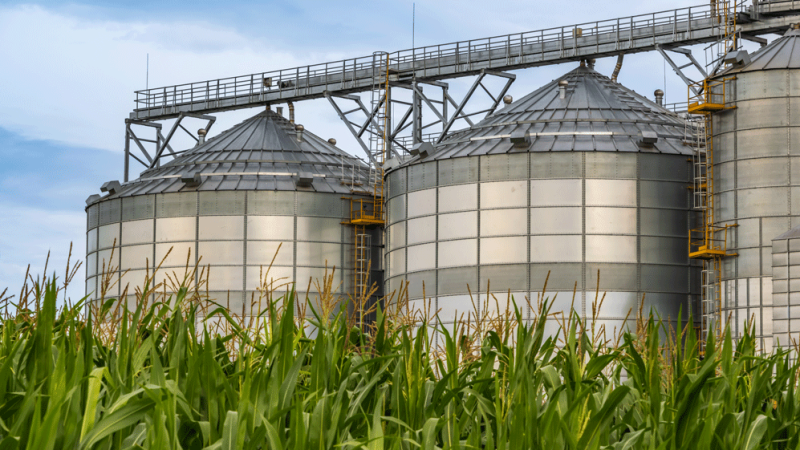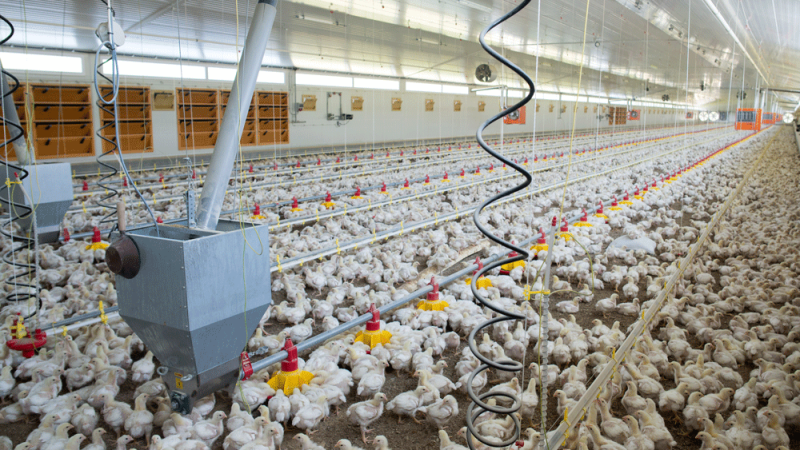Chicoa Fish Farm is the brainchild of Damien Legros and his business partner, Gerry McCollum. In 2012 Legros and McCollum were asked by an investment company to investigate the aquaculture possibilities in Mozambique, and the pair travelled the country looking for potential locations where such a project should be developed.
It was no easy task. When Legros and McCollum set about looking, Mozambique’s aquaculture industry was nowhere, and even today aside from Chicoa Fish Farm the industry is mostly undeveloped.
“We looked at the people, the authorities, small-scale farmers, and we ended up spotting a good place, which was Lake Cahora Bassa, a man-made lake in Mozambique near a hydroelectric power plant,” Legros, now Chicoa Fish Farm’s COO, recalls.
It was an unorthodox choice. Other fish farms in the region are typically located on the edge of floodplains. However, McCollum and Legros foresaw that the topography of the site meant they could place production cages no further than 500 metres from the shore. This, in turn, aided the logistics of fish feeding and harvesting, allowing the project to operate on a whole new scale of efficiency compared to its counterparts.
“We already had experience developing a fish farm on an upstream lake, so we knew the conditions would be favourable,” Legros says.
However, their vision would almost immediately face new obstacles.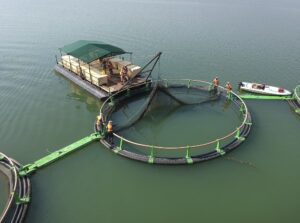
“We did a complete business plan, but by the time we submitted it the investment firm was no longer interested in pursuing the project,” Legros tells us.
Not to be deterred, McCollum and Legros went looking for other investors, eventually coming into contact with the investment fund, Aqua-Spark.
“Aqua-Spark is an impact fund that only invests in projects with a social and environmentally positive impact,” Legros explains. “Later on, we also had Goodwell Investments, who are also an impact investor.”
Making an Impact
Both funds would prove to be a perfect match for Chicoa’s business plan, as well as its wider objectives.
“We are not just delivering a fish farm, what we are doing has more meaning than that,” Legros insists. “Our mission is to develop the farm as an example. It helps develop the industry in the country. From that point of view, our impact component is very important.”
To this end, Chicoa Fish Farm has already brought jobs to local communities, training and employing over 400 farmers. As well as its social impact on local communities, Chicoa Fish Farm has also prioritised its environmental impact from its inception.
“Our mission has always been to be carbon neutral. Our farm doesn’t use any electricity, which is fortunate as the energy supply can be unreliable in our environment,” Legros tells us. “The farm itself is carbon neutral. We take advantage of every opportunity to ensure we have no carbon footprint. That’s one of our unique selling points.”
Fundamentally, carbon-neutral practices and local job creation are all subsidiaries of a bigger purpose. As Legros explains, Chicoa Fish Farm is driven by the knowledge that Africa has a large protein deficit and a growing population. The answer to that challenge could very well be fish.
“Fish farming is an activity that meets that protein deficit well. Fish converts very well to different proteins. That is the heart of our work, is to show that we can create good quality protein,” Legros says. “Fish are more efficient because they are in the water. They do not need to spend energy to warm themselves up. They live in an environment where they do not have to carry their weight.”
Legros illustrates this with one simple statistic.
“If you want to produce a kilo of chicken you will need 2 kilos of feed. 1.3 kilo of tilapia feed produces 1 kilo of fish,” he says.
With Africa’s increasing population this is a valuable resource, particularly given the food security issues the continent faces.
“We know that food security leads to political stability and other issues in the population improving,” Legros says. We want to not only run a profitable sustainable fish farm but influence others to do it too.”
Building, Not Extracting
Of course, a project like this will naturally face challenges. Chicoa Fish Farm is operating in an area that is short on infrastructure. While fortunately, the farm does not make use of the region’s 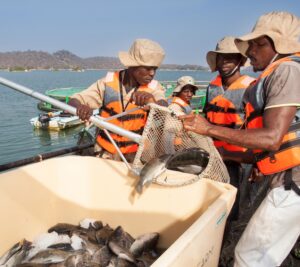 unreliable electricity supply, the absence of other infrastructure, such as roads, can make its job difficult.
unreliable electricity supply, the absence of other infrastructure, such as roads, can make its job difficult.
“But despite all of that we remain resilient, agile, and carry on with the project,” Legros says. “A lot of companies or people just come to Africa to take its mineral resources. That’s the easiest way to make money here, exploiting natural resources. It is much more difficult in the long term to build an industry we believe in in the environment we’re operating. But that is a big driver for us. We want to build development, not just extract value.”
None of these challenges have come as a surprise to Legros.
“Throughout this project, we have needed to keep going further because, as I said, the infrastructure and business environment is not sufficient,” he tells us. “We have to transport the fish, frozen, to different markets in Zambia, Malawi, and Zimbabwe. We realized we would have to get involved in every section of the supply chain so that it reaches the market in the desired state.”
Chicoa has been bringing a wealth of talent into the fold to achieve this mission. Jayson Coomer joined the firm in 2016, bringing financial skills that have proved essential in fundraising. Later, Zerene Haddad joined in 2019 to strengthen the company’s Impact component.
From the beginning, Chicoa Fish Farm was not going to be one isolated farm. It would have to diversify, and Chicoa has already acquired and established other fish farms in the region.
“Geographically we would like to cover a greater geographic footprint than Mozambique alone,” Legros says. “We want to continue developing the industry with more smaller-scale fish farmers around the country. In a few years, we want Mozambique to be a significant aquaculture producer. It’s ambitious but it is what we do.”
